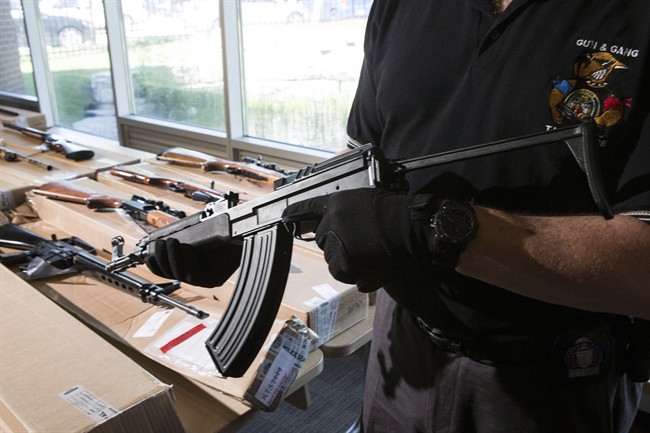TORONTO – A law that prohibits disseminating wiretaps doesn’t apply to the search warrants used by Toronto Police in the Project Traveller raids, lawyers representing several Toronto media outlets, including Global News, argued Thursday.

Media lawyers representing Global News, The Canadian Press, the Toronto Star, the Globe and Mail, Postmedia and CBC have spent months trying to obtain search warrants from a massive gun-and-drug raid this spring that resulted in dozens of arrests. The news organizations argue the public has a right to know what’s in those documents – especially given a possible link to Toronto’s Mayor Rob Ford.
But the Crown suggested in court Thursday that the search warrants contain references to wiretaps, which cannot be disclosed.
Peter Jacobsen, the lawyer representing the media organizations, argued the information would be presented in court and is exempt from the prohibition.
Follow continuing coverage of Project Traveller from GlobalNews.ca
Media lawyers are seeking to unseal ‘packets’ of search warrants sealed soon after the arrest of 43 people in the Project Traveller raids in June.
Warrants are supposed to be made public if someone wants them, Jacobsen said – unless the Crown or defence argues otherwise.
In this case, they were sealed.
And media lawyers found out Thursday there’s a lot more to unseal than they thought: 80 search warrants, in total.
“It was quite frustrating, because we’ve been asking about this for months,” Jacobsen said. “To me that’s not a transparent system. Nor is it a system that really breathes life into the open court principle.”
Ontario court judge Philip Downes is expected to release his decision early next week. But before any documents are released, lawyers representing some of the 43 people arrested in the raids will be able to request that media be prohibited from publishing some or all of the information.
The Project Traveller raids led to the arrests of 43 people, the seizure of 40 firearms, $572,000 in cash and close to $3 million in narcotics including cocaine, heroin and hashish.
Warrants were executed in several cities but focused on an Etobicoke apartment complex at 320 Dixon Road, near Kipling Road and Islington Avenue. That same address was purported to be the location where reporters allege they viewed video of someone matching the mayor’s appearance smoking what could be crack cocaine.
Global News has not seen the video and cannot verify its authenticity.
The mayor has previously called the allegations “ridiculous”; his brother, Councillor Rob Ford, said the mayor called the allegations were “untrue.”
-With files from The Canadian Press




Comments